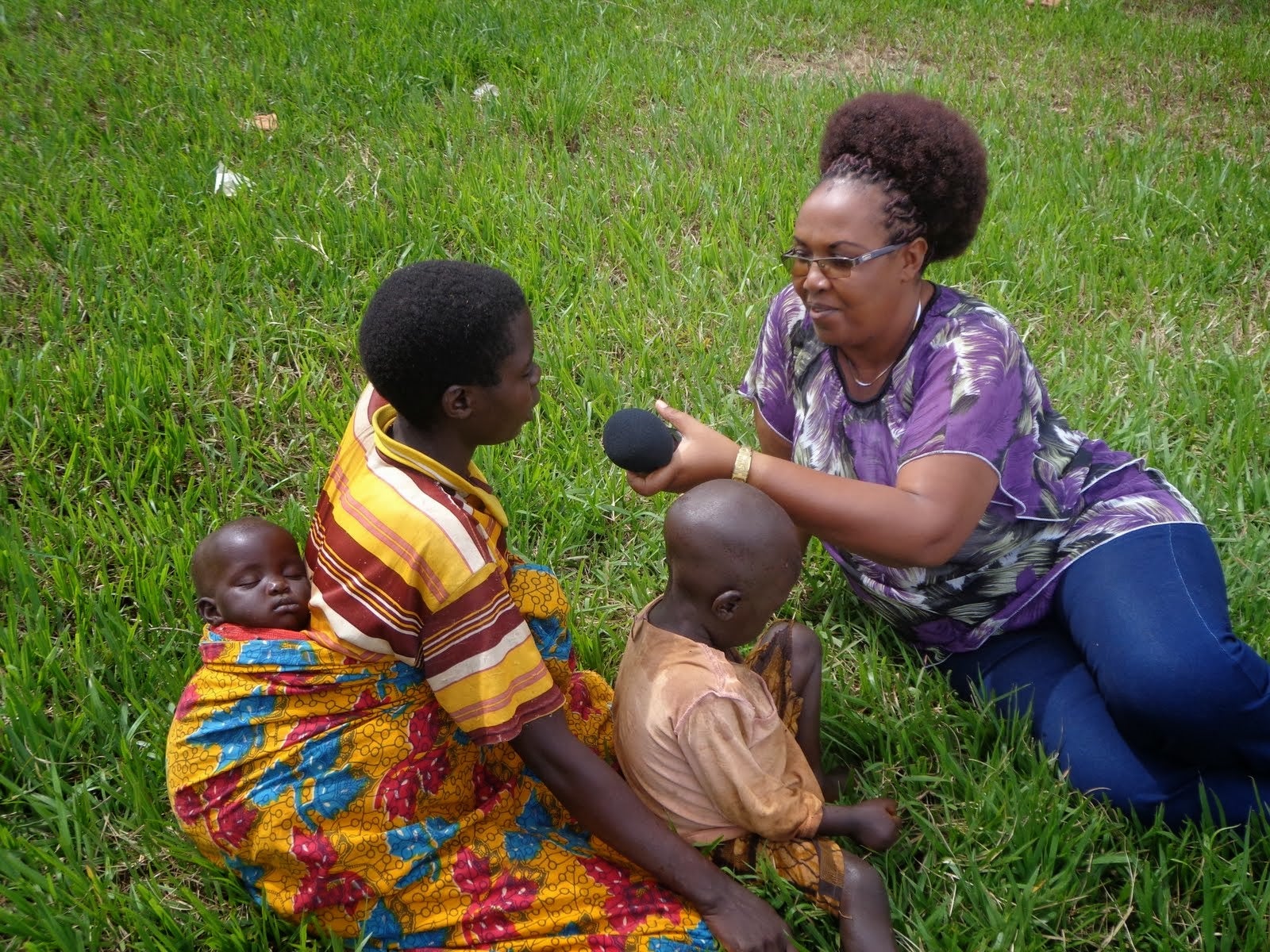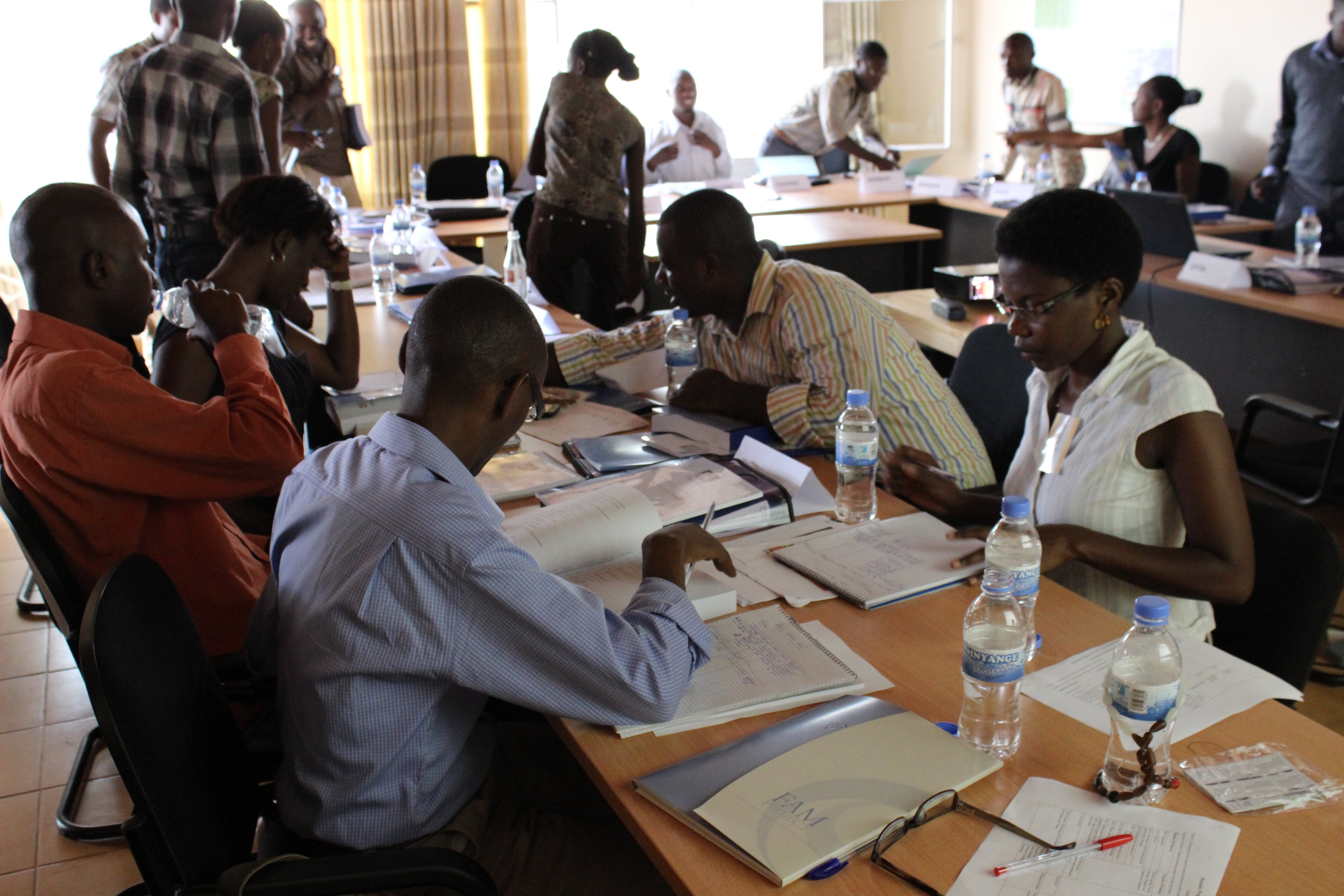The power of Sabido for amplifying a little known topic like fertility awareness
Let’s start with a quick quiz. What do all of these three quotes have in common?
- “I won’t get pregnant the first time I have sex.”
- “If you’re breastfeeding, you won’t get pregnant.”
- “Birth control causes health problems. You may never be able to have children if you use it.”
Answer: These are all common misconceptions about fertility awareness.
So how do you change perceptions, impart information in a non-threatening way, and reach out to a whole nation simultaneously? The Institute for Reproductive Health at Georgetown University’s FACT Project has partnered with Population Media Center (PMC) to create a super entertaining radio serial drama (aka soap opera) to do just that. Using a proven theory-based approach to behavior change communications developed by Miguel Sabido, the drama “Impano n’Impamba” (A Gift for Today That Will Last a Long Time) pulls audiences in across Rwanda (see map above!) with intriguing storylines all while addressing fertility awareness and other health and social issues in a dynamic way. And we have a groovy theme song.
Why Sabido?
- Listeners get emotionally involved in the stories. They care what happens to the characters and we remember information better when it’s put in a context and there’s an emotional connection.
- Characters mirror real-life situations. Because the drama is long-running, characters can evolve in their thinking and behavior at a believable pace — an advantage to other forms of media messaging such as billboards or PSAs. “Impano n’Impamba” doesn’t just send out messages or preach; it uses characters to role model the desired behaviors.
- The serial drama format with multiple interweaving plots makes it possible to address more than one issue over time in an engaging way. Real life isn’t simple, why would the story be!
- The serial drama provides repetition and continuity to this mass media approach.
- Formative research on the issues and how people view them (even noting how people talk about the topics and the words they use) is key to developing stories that resonate with listeners.
- It’s replicable. The methodology can adapt to individual values and cultures.
- “Impano n’Impamba” is developed, written, and produced in Kinyarwanda by Rwandans. It’s local and authentic.
 But let’s get back to fertility awareness and incorporating it into the serial drama. The team draws from daily life as they plot the story. “Impano n’Impamba” integrates information about the menstrual cycle, when/how pregnancy occurs, who’s fertile and when, for example. Head Writer & Producer Alfred Twahirwa explains, “We created a scene where a mother is explaining to her curious 14 and 16-year-old children about different types of family planning. The father comes into the scene hears what the mother is saying and tries to stop her, saying you don’t tell children this, it’s taboo. We want to break taboos and talk about the menstrual cycle. In the following scene we go deeper and talk about when a woman has cervical secretions and has unprotected sex that day, she has a greater chance of becoming pregnant.”
But let’s get back to fertility awareness and incorporating it into the serial drama. The team draws from daily life as they plot the story. “Impano n’Impamba” integrates information about the menstrual cycle, when/how pregnancy occurs, who’s fertile and when, for example. Head Writer & Producer Alfred Twahirwa explains, “We created a scene where a mother is explaining to her curious 14 and 16-year-old children about different types of family planning. The father comes into the scene hears what the mother is saying and tries to stop her, saying you don’t tell children this, it’s taboo. We want to break taboos and talk about the menstrual cycle. In the following scene we go deeper and talk about when a woman has cervical secretions and has unprotected sex that day, she has a greater chance of becoming pregnant.”
 In addition to characters discussing fertility awareness or demonstrating the consequences of the lack thereof, PMC uses epilogues to further reinforce or elaborate on the issue. Alfred describes the process of creating an epilogue with IRH this way, “We draft an epilogue after a script is finalized and episode is recorded. This is to make sure the epilogue corresponds to the episode. We identify the cliffhanger and then we strengthen it by emphasizing the message in the episode.” Staff members from the FACT Project provide PMC with material to craft the epilogues which relate to fertility awareness. Together a final draft is agreed upon and then the epilogue is recorded and mixed with the special signature.
In addition to characters discussing fertility awareness or demonstrating the consequences of the lack thereof, PMC uses epilogues to further reinforce or elaborate on the issue. Alfred describes the process of creating an epilogue with IRH this way, “We draft an epilogue after a script is finalized and episode is recorded. This is to make sure the epilogue corresponds to the episode. We identify the cliffhanger and then we strengthen it by emphasizing the message in the episode.” Staff members from the FACT Project provide PMC with material to craft the epilogues which relate to fertility awareness. Together a final draft is agreed upon and then the epilogue is recorded and mixed with the special signature.
Example epilogue:
At Bushimangando, there are discussions between Ketia and Afisa on Ketia’s reproductive health. Have you ever talked with your children about the changes that happen to their bodies when they are adolescent as Sifa is doing it now? Did you know that a woman is fertile only on certain days each month around the middle of her cycle? Did you know that a menstrual cycle is all of the days from the beginning of a woman are bleeding to the next month’s bleeding? It’s also important to know that a man is always fertile. If he has sex with a woman on her fertile days, she can get pregnant. It’s important to know this as it helps us to prevent unwanted pregnancy; we can also use condoms or other contraceptive methods. Does Ketia knows all this?
Increasing awareness and knowledge and creating positive behavior change is a fine balance of hooking the audience in with a really good story first and foremost, and then passing on the information along the way.
Listen to Episode 1 of Impano n’Impamba.
 Where We Work
Where We Work  Press Room
Press Room  FACT Project
FACT Project  Passages Project
Passages Project  Learning Collaborative
Learning Collaborative  Search All Resources
Search All Resources  Social Norms
Social Norms  Fertility Awareness Methods
Fertility Awareness Methods